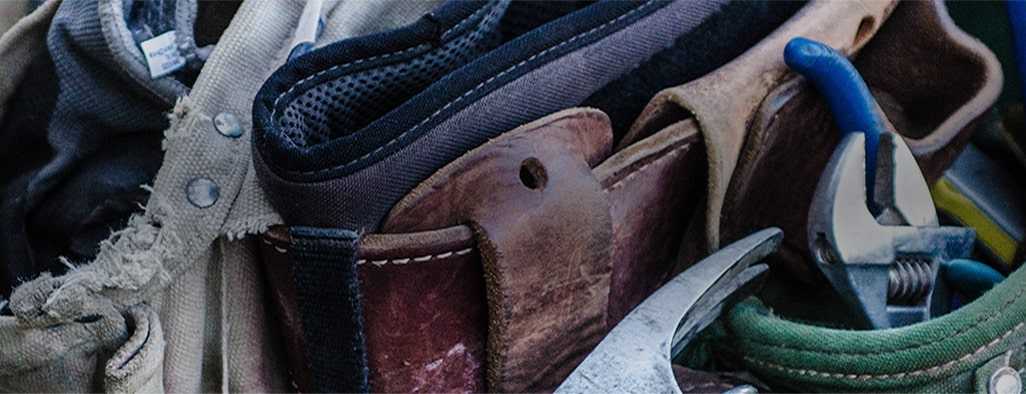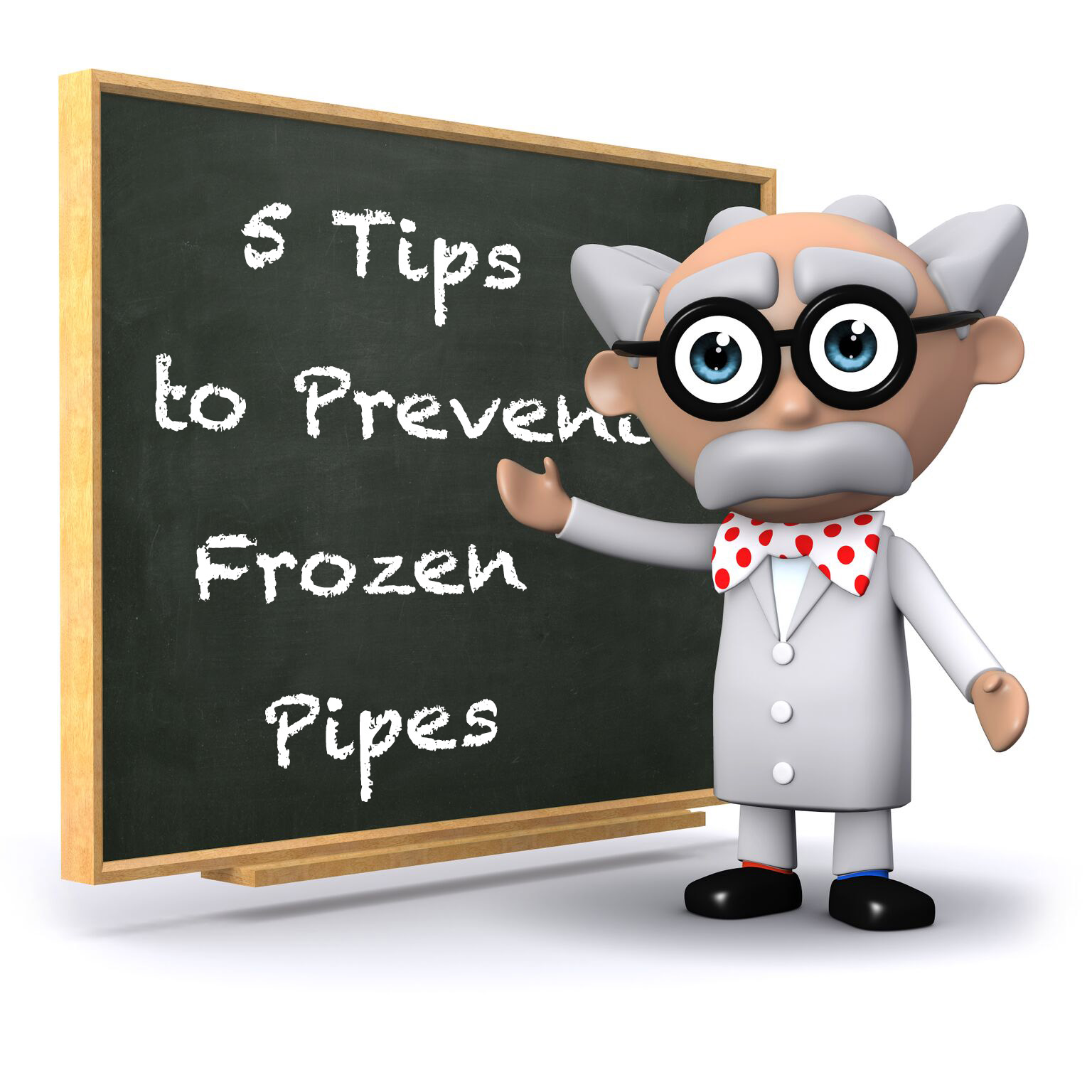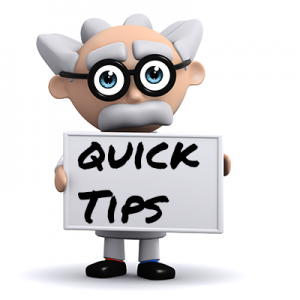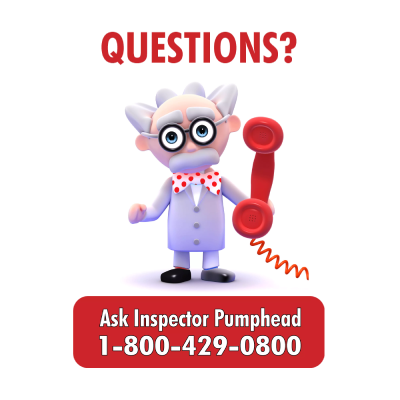-
5 Tips to Prevent Frozen Pipes
March 6, 2019Welcome to Inspector Pumphead’s classroom once again! This week’s lesson is an important one. The Inspector happened to look out his window the other day and noticed it’s still cold outside. The Inspector loves hot cocoa and skiing just as much as the next world renowned pump expert but one thing about winter that gives him the chills is the potential for frozen pipes. The Inspector is getting goose bumps just thinking about it. How can a pump properly function if the plumbing system around it isn’t functioning The Inspector cares about pumps almost more than world peace so he has decided to make a list of preventative measures you can take in order to keep your pipes from freezing. Turn up the Heat The Inspector’s first tip is perhaps the most obvious sounding on this list. If you decide to go away during the winter (hopefully you’re vacationing in a warm place, the Inspector recommends Cancun), it’s a good idea to keep the heat on while you’re away. Paying a little money for the heating bill can save the money it’s going to cost if a pipe freezes and bursts. A good rule of thumb to follow is setting the heat above 50 degrees Fahrenheit while you’re away. If you’re not going away this winter, it can also be beneficial to keep the temperature consistent in your home during both day and night. Let the Faucet Drip Allowing a slight drip from a faucet relieves pressure in a system. Even a trickle can help prevent pipes from freezing. When a pipe freezes, it is the pressure created between the blockage and faucet that causes the pipe to burst. An open faucet can prevent pressure from building up. If a faucet has both cold and hot taps, open both slightly. If a faucet has a single handle, set the faucet to warm. Seal off Cracks and Holes Exposed pipes are more vulnerable to cold air. Common places where cracks occur are window and door frames as well as in the back of cabinets. Make sure that if you notice an exposed pipe, you seal it up. Seals help to contain warm air and protect against cold drafts. A caulk or spray foam insulation make for effective seals. Open up Cabinet Doors Opening cabinet doors, especially in rooms like kitchens and bathrooms where there is more plumbing, is an easy measure to take in the war against frozen pipes. Doing this will allow warmer air to circulate and balance the temperature in a house. You don’t need to keep your cabinets open all winter (the Inspector doesn't have the will power to fight against snacks staring at him in the face that long) but this is a good idea to do periodically. Remember to protect your food and keep anything harmful in the cabinets away from pets or children as well. Add Insulation Some pipes may need more insulation than others depending on where they’re located. Extra insulation will help keep the pipe the same temperature as the water inside it. Materials such as foam rubber or fiberglass can be fitted onto pipes for extra insulation. Please keep in mind a pipe will still freeze if it is exposed to freezing temperatures for an extended period of time. The Inspector hopes these tips help. If you experience any issues with frozen pipes there are always solutions such as allowing hot water to run which can melt the ice in the pipe. Of course if things get really serious, calling your local plumber is never a bad idea. As always, if you are in need of a pump, pump accessory, or just have a pump question and need a friendly voice to talk to, call our pump experts. They can give you advice on how best to maintain your pump during the winter months. Pump Products application engineers are standing by to help you find the right pump, as well as to provide price quotes, stocking availability and shipping information. Call our toll free number 1-800-429-0800 to speak to an expert today.
-
7 Tips to Save Money at Home while Traveling
May 18, 2018It’s that time of the year again. The sun is starting to peek behind the clouds, flowers are blooming, and birds are deciding its okay to wake you up at 3 AM with a song. So you know what that means. It’s time to get the heck out of here and take a vacation, or as the British call it, a holiday. Below are a few tips about your lights, water system and household appliances to save both energy and money while you're away. Tip 1: Thermostats are Cool Setting your thermostat for the appropriate temperature or turning off your air conditioning is essential. For summer vacations, set the furnace to a low temperature and if you have central air, set it to a high temperature to make sure it doesn't turn on until you get back. During winter months, thermostats should be set at 50° F to ensure pipes and appliances don’t freeze. Programmable thermostats are especially handy during vacations as your appliances do all the work for you. It may also be helpful to close doors around your house to keep individual rooms better insulated. Tip 2: Plug it Out, Plug it Out Unplug any nonessential appliances or gadgets as most devices still consume energy as long as they’re plugged in, even if they’re turned off. Devices such as toasters, televisions, and coffee makers are known as “energy vampires” because of this. The good news is you don’t need any holy water or garlic to scare these energy suckers away; simply unplugging them will work. Pumps are generally an appliance that you won't want to unplug while you're away, but you might be able to save energy on some on-demand systems. For instance, re-circulating pumps designed to deliver immediate hot water to your tap can have the accompanying timers turned off for potential energy savings. A popular re-circulating pump with an easily disabled timer is the Laing LHB08100085. Some booster pumps designed to provide extra pressure at the tap, such as the Grundfos MQ series pumps have sensors that can be disabled. Keep in mind that you should only disable the sensors if you use your booster pumps specifically for extra tap pressure; if you use a booster to evacuate rainwater or another similar application you need those pumps fully functional. Tip 3: If you try to steal a jacuzzi you might end up in hot water As much as it may hurt, turning off that boiling but somehow incredibly relaxing hot tub while you’re gone could shrink your next bill. Water heaters generally account for 15-20% of your bill so switching off the breaker to your water heater could help save you a ton. If you have a gas model and not an electric water heater, switch your heater to its pilot setting. Tip 4: Is your refrigerator running Because you should probably ahhhh....you know the rest.... Refrigerators are among the biggest consumers of energy. Adjusting your refrigerator to 42 degrees and the freezer to 5 degrees is a warmer but food-safe temperature. Determine what food you should keep and what food is perishable. Packing your freezer actually increases efficiency as well. If you’re particularly daring and going away for an extended period of time, you can turn your refrigerator off to save energy and prop the doors open with a dish. Remember to clean the shelves before you leave to prevent any bad smells. Also it’s probably time you threw out that two week old plate of lasagna anyway. Tip 5: What did the curtain rod say to the blinds Nice shades. A simple but super helpful thing to do while on vacation is to close your curtains and shut your blinds. Heat can enter your home through windows and closing curtains helps to conserve heat energy. Closing your curtains keeps heat in during the winter and heat out during the summer. This will also help your air conditioner do less work to cool the house down after you return. Tip 6: Text Alerts Are Your Friend One of the wonders of our modern technological society is that as long as you have a phone and some data, there is very little information that is out of your reach. That includes the status of your pumping system. Pump alarms have long served to let users know when the groundwater level in a pit becomes untenable. Now you can receive both SMS text alerts and emails to your phone when the alarm sounds. One of the most popular alarms is the Liberty NightEYE which is wireless enabled and includes a snap-on float switch. The NightEYE is built for use with an indoor Liberty sump pump and can send texts, emails or push alerts to up to four different contacts using cloud technology. Compatible with both Apple and Android, the NightEye is just one option to make sure you know the state of your system when you're away from home. An smart alarm will save you money in the long run by making sure you don't have to replace aspects of your system. Tip 7: Let There Be Light Many people leave a precautionary light on while they’re away to ward off burglars. Having programmable lights can save you lots of energy. Instead of a light being on all day, having an automatic or sensor equipped light that turns on when the sun goes down can be just as effective and more energy friendly. So I’ve done all those tips, what now You've made it through a bunch of helpful tips...and a few bad jokes....but finally we’ve arrived at perhaps the most important tip: enjoy your vacation and don’t stress! Stretch out on the sand, put on that one Jimmy Buffet song, and enjoy a drink that comes with a free mini umbrella.







